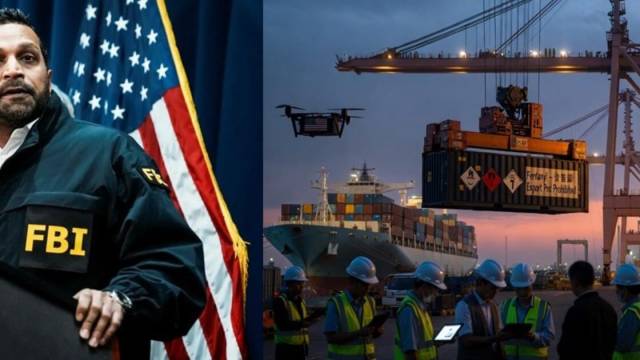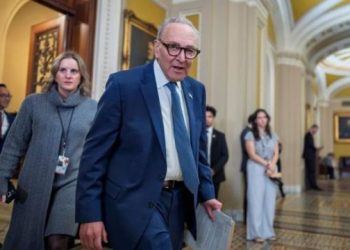Kash Patel, President Trump, and the entire administration successfully secured an immediate halt to fentanyl precursor exports from China. However, regarding promises for enhanced law enforcement collaboration, skepticism remains as China has a history of failing to uphold such commitments.
FBI Director Kash Patel met with Wang Xiaohong, China’s Minister of Public Security and a close ally of Xi Jinping, at the Ministry of Public Security in Beijing. This marked the first visit by an FBI director to China in over a decade, with the primary focus on addressing the fentanyl crisis.
Negotiations had been ongoing for several months, involving Attorney General Pam Bondi and Secretary of State Marco Rubio, who worked to create the necessary policy framework to dismantle the fentanyl supply chain. This meeting followed President Trump’s discussion with Xi Jinping in October 2025, where Xi first committed to addressing fentanyl precursors.
During a White House briefing on November 12, Patel revealed the outcomes of the meeting, stating that the Chinese government had acknowledged his discussions in Beijing and described the access he received as unprecedented. Chinese officials reportedly recognized that their precursors are utilized in fentanyl production and agreed to list all 13 fentanyl precursors along with seven chemical subsidiaries linked to the supply chain. These measures are set to be implemented immediately, as finalized by U.S. and Chinese officials during the meeting.
Patel asserted that President Trump had effectively closed off the pipeline responsible for numerous American fatalities, stating, ‘These substances are now banned,’ and that Mexican drug trafficking organizations would no longer have access to them. He credited this agreement with saving tens of thousands of lives and acknowledged the contributions of President Trump, the Attorney General, the Department of Justice, the FBI, and Ambassador Perdue in China.
In discussions with his counterpart, Patel also sought to expand cooperation in law enforcement, targeting criminals who have defrauded both Chinese and American victims through cyber scams and phone fraud. He highlighted the need for joint efforts to combat online crimes aimed at children, which both nations recognized as an increasing threat.
Patel and Chinese Vice Minister of Public Security Xu Datong also addressed the importance of ensuring that violent criminals are brought to justice, especially those involved in cross-border networks. Patel described these initiatives as crucial for protecting American citizens and disrupting criminal organizations operating across jurisdictions.
While the ban on fentanyl precursors is a positive development, the reliability of China’s broader cooperation remains in question. Given China’s track record of making promises without follow-through, skepticism is warranted. Historically, China has leveraged law enforcement and counter-narcotics cooperation as a bargaining chip, providing assistance when relations improve and withdrawing it during tensions.
In 2019, China added all fentanyl-related substances to its controlled substances list, leading to joint investigations that resulted in trafficking convictions. However, by late 2021, that cooperation deteriorated, with no prosecutions and restrictions placed on DEA agents following Nancy Pelosi’s visit to Taiwan, after which China ceased cooperation on drugs and other issues.
This pattern of cooperation breakdown repeated in 2023 and 2024. Following the Biden-Xi summit in November 2023, China announced it had shut down some suppliers and resumed reporting suspicious shipments to the International Narcotics Control Board (INCB). Yet, experts in drug markets warned that these actions seemed more like public relations than genuine enforcement, with no evidence of real intent to crack down.
Investigators from a U.S. House subcommittee found indications that Chinese government agencies subsidize the export of fentanyl precursors, despite claims of a crackdown. Chinese chemical exporters remain profitable, and targeting them conflicts with Beijing’s economic policies. Additionally, as China faces no domestic synthetic opioid crisis, there is little internal pressure to stop the flow of fentanyl precursors that primarily contribute to the American epidemic.
The broader law enforcement landscape is similarly challenging. The absence of an extradition treaty between the U.S. and China severely limits cooperation on cybercrime and transnational offenses, with China frequently refusing to extradite its citizens on sovereignty grounds.
Despite possessing an advanced domestic surveillance system and extensive extraterritorial enforcement capabilities used against dissenters, Beijing has shown little willingness to apply similar measures to combat the global opioid crisis.
China has the ability to address these operations whenever it chooses, as evidenced by its aggressive anti-corruption campaigns and pursuit of political adversaries. However, when cooperation aligns with its strategic interests, it tends to offer mere symbolic gestures and minimal action, retreating once the spotlight fades.
 Telegram is where we really talk. Don't miss out!
Telegram is where we really talk. Don't miss out!









